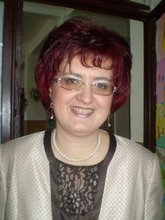“Junior inventors” are ca principal obiectiv descoperirea jocurilor si jucariilor pe care le inventeaza copiii dezavantajati material din Europa pentru a se distra, si colectarea lor intr-o carte ce va fi publicata in limba engleza si limbile tarilor partenere in proiect.Obiectivul proiectului este de a pune in valoare creativitatea si inventivitatea copiilor.
Munca de cercetare si de colectare a jocurilor va fi realizata de echipe de profesori si elevi din scolile implicate in proiect, iar grupurile-tinta pentru aceasta cercetare vor fi compuse din copii in varsta de 6/7 – 14/15 ani. Jocurile copiilor vor fi studiate o vreme pentru a descoperi ce tipuri de jocuri joaca afara copiii cu prietenii lor si materialele pe care le folosesc in aceste activitati. E interesant de observat daca se joaca folosind jucarii gata facute sau isi fac singuri jucariile.
Produsele finale ale proiectului vor fi: o culegere de jocuri colectionate pe parcursul proiectului, culegere care va fi publicata in limba engleza si limbile tarilor partenere in proiect; un CD continand inregistrarile video ale jocurilor, si, in cazul echipei romane, un curs optional extracurricular numit “The English Club” (“Clubul englez”); un blog si un website.
Obiectivele specifice ale proiectului sunt:
- Punerea in valoare a jocurilor si jucariilor pe care le inventeaza copiii dezavantajati economic pentru a se distra in timpul liber si colectarea lor intr-o culegere publicata in limba engleza si limbile tarilor partenere in proiect.
- Implicarea copiilor in munca de cercetare in echipe
- Motivarea elevilor in invatarea limbilor straine pentru a putea comunica mai usor cu colegii lor din strainatate.
- Motivarea elevilor si profesorilor in a folosi tehnologiile moderne de comunicatie si informare - Imbunatatirea schimburilor culturale dintre elevi si profesori folosind activitatea preferata a copiilor: jocul.
- Gasirea modalitatilor de a ajuta elevii dezavantajati sa stie ca sunt si in alte tari copii care nu-si pot permite jocuri si jucarii scumpe, si ca acestia sunt pregatiti sa-si impartaseasca jocurile cu alti copii.
Impactul asteptat:
- Elevii vor invata cum sa-si valorifice potentialul creativ
- Elevii vor fi motivati sa-si imbunatateasca deprinderile de comunicare in limba straina pentru a putea colabora cu partenerii din proiect
- Munca la proiect va dezvolta la elevi deprinderile de a citi, scrie si vorbi in engleza
- Atat elevii cat si profesorii isi vor imbunatati deprinderile de folosire a tehnologiilor de informare si comunicare.
- Elevii vor invata cum sa lucreze in echipa si cum sa negocieze si sa coopereze in echipa.
- Profesorii vor fi motivati sa integreze activitatile de proiect in programa si sa-si foloseasca creativitatea pentru a-si imbogati metodele de predare si sa impartaseasca initiativele inovative cu alti colegi. Ei vor beneficia si de informatiile si schimburile de experienta realizate cu profesorii din alte tari europene.
- Schimburile inter-culturale dintre elevii si profesorii din tarile partenere in proiect vor ajuta in combaterea rasismului si xenofobiei si vor promova toleranta fata de alti oameni.
- Pe termen lung, comunitatea locala va beneficia din acest proiect prin o mai buna intelegere a nevoii copiilor de comunicare cu adultii.
- Proiectul va permite profesorilor si comunitatii educationale sa obtina informatii care sa le permita sa-i consilieze si indrume pe elevi in functie de interesele si talentele lor.
- Proiectul ii va ajuta pe oamenii interesati sa inteleaga ca si copiii pot fi creativi atunci cand vor - Prin deschiderea mintilor copiilor de azi, putem asigura dezvoltarea cetatenilor cu vederi mai largi de maine.
Diseminarea proiectului se va realiza prin diferite metode:
- Prin prezentari si expozitii publice cu imagini si obiectele create de copiii de la scolile partenere ale proiectului
- Prin prezentarea proiectului la intalnirile regionale ale profesorilor
- In mass-media locala
- Cu alte ocazii, cum ar fi “Ziua primaverii in Europa”, “Ziua Europei”, “Ziua europeana a limbilor straine”, etc.
- Pe blog-ul si website-ul proiectului.
Scolile partenere in proiectul “Junior Inventors” sunt:
Coordonator european al proiectului:
SCOALA CU CLASELE I - VIII NR. 5 BAIA MARE , ROMANIA
Parteneri:
 75. YIL KIRKÖY PANSİYONLU İLKÖĞRETİM OKULU, KIRKÖY, TURCIA
75. YIL KIRKÖY PANSİYONLU İLKÖĞRETİM OKULU, KIRKÖY, TURCIAPrima intalnire de proiect se va desfasura la inceputul lunii noiembrie la Baia Mare, gazda fiind Scoala cu clasele I-VIII nr.5 din Baia Mare.
